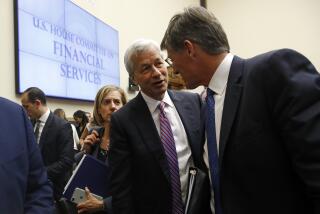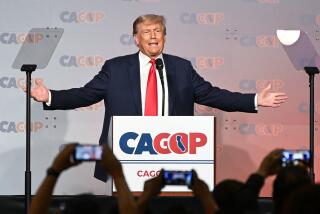What the conventions told us
Like the Republican convention that preceded it, the Democratic National Convention was a combination of infomercial, revival meeting (with former President Clinton in the role of evangelist in chief) and audition for rising political stars. Also like the Republican gathering, it was predictably longer on general pronouncements than on precise policy prescriptions.
Still, the convention in Charlotte, N.C., effectively dramatized important differences between the two parties and their candidates. Some involve foreign policy (President Obama accused Mitt Romney, fairly, of wanting to return to “an era of blustering and blundering”). Others deal with the social issues, notably same-sex marriage and abortion rights, that loomed so large in the convention’s oratory. Here, the Democrats’ policy is the enlightened one, while the Republican platform is a capitulation to social conservatives.
Most important, the parties differ on the role of government in promoting what the Constitution calls the general welfare.
The message from the podium in Tampa, Fla., was that debt, deficit and government regulations are not just holding back the economy, they are destroying the American dream that each generation can do better than its predecessors. In the GOP’s telling, Obama would make matters worse by raising taxes on those who have the power to pull the country out of its rut, penalizing the successful in order to satisfy the burgeoning demand for handouts. The rising cost of government and entitlements amounts to an existential challenge to this country, the Republicans argued, and Obama has no plan to bring that cost under control.
The response from Democrats was that the economy is improving, albeit too slowly (a reality confirmed by unemployment figures released Friday), and that the size of the debt shouldn’t deter Washington from making the investments in education, research and infrastructure that will help the economy over the long run. The existential threat to America isn’t from government, it’s from rising income inequality, the gap between workers’ skills and the demands of the new economy, and the worst downturn since the Depression. Oh yes, and it also comes from Republicans who want to dismantle the government programs, laws and rules that help Americans afford college, obtain health insurance, cut their use of fossil fuels and guard against another Wall Street collapse.
There are also specific policy differences, some of them highlighted in Charlotte. Obama would not continue Bush-era tax cuts for households with incomes over $250,000, and he would reject Republican proposals to “voucherize” Medicare. In his acceptance speech, Obama slyly mocked the Republicans’ fixation on tax cuts: “Have a surplus? Try a tax cut. Deficit too high? Try another. Feel a cold coming on? Take two tax cuts, roll back some regulations and call us in the morning.”
POLL: After the conventions, what’s left to debate?
Of these two accounts of reality, the Democrats’ is the more persuasive one. But while his acceptance speech touched on a variety of issues, Obama was less than clear about how he would accomplish some of his priorities. For example, he called for strengthening Social Security in some unspecified “responsible” way. Of course, Romney also has been stingy with details. For example, he’s refused to explain how he would slash tax rates without increasing the deficit.
It’s possible that Obama and Romney will be more forthcoming on the campaign trail, especially in three televised debates in which the questioners, if not the candidates themselves, will press for specifics. The debates also could force the candidates to address issues of leadership that linger for a lot of voters after the conventions: Would Romney as president be willing to cross the conservative activists to whom he has been so deferential if that were the cost of achieving his objectives? What makes Obama think he will be more successful in forging compromises with congressional Republicans — including a “grand bargain” to simplify the tax code and reduce the debt — in a second term than he was in the first? His acceptance speech was disappointingly evasive on that question.
Many voters are comfortable about casting their ballots without any additional elaboration from the candidates, and that’s not surprising. As Obama said in his acceptance speech, this election already poses the “clearest choice of any time in a generation.” But in a close contest, both candidates may find it advantageous to go into greater detail when they aren’t preaching to the already converted.
More to Read
A cure for the common opinion
Get thought-provoking perspectives with our weekly newsletter.
You may occasionally receive promotional content from the Los Angeles Times.






